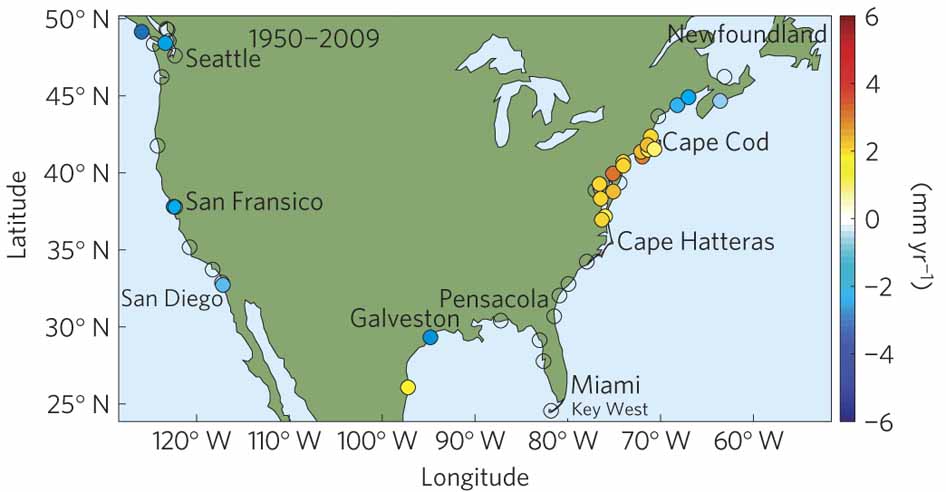We periodically hear about rising seas, but little about sinking land - except possibly in places such as New York’s Battery Park, coastal New Jersey and Norfolk, Virginia. Rising seas and sinking land increases flooding and eventually decrease property values. According to Justin Gillis of the New York Times:
“Scientists say the East Coast will be hit harder for many reasons, but among the most important is that even as the seawater rises, the land in this part of the world is sinking. And that goes back to the last ice age, which peaked some 20,000 years ago.”
“As a massive ice sheet, more than a mile thick, grew over what are now Canada and the northern reaches of the United States, the weight of it depressed the crust of the earth. Areas away from the ice sheet bulged upward in response, as though somebody had stepped on one edge of a balloon, causing the other side to pop up. Now that the ice sheet has melted, the ground that was directly beneath it is rising, and the peripheral bulge is falling.”
Sinking along the East Coast varies by location and thus ocean rise will vary:
“Even if the global sea level rises only eight more inches by 2050, a moderate forecast, the Rutgers group foresees relative increases of 14 inches at bedrock locations like the Battery, and 15 inches along the New Jersey coastal plain, where the sediments are compressing. By 2100, they calculate, a global ocean rise of 28 inches would produce increases of 36 inches at the Battery and 39 inches on the coastal plain.”
“These numbers are profoundly threatening, and among the American public, the impulse toward denial is still strong. But in towns like Norfolk — where neighborhoods are already flooding repeatedly even in the absence of storms, and where some homes have become unsaleable — people are starting to pay attention.”
Source: The Flood Next Time

